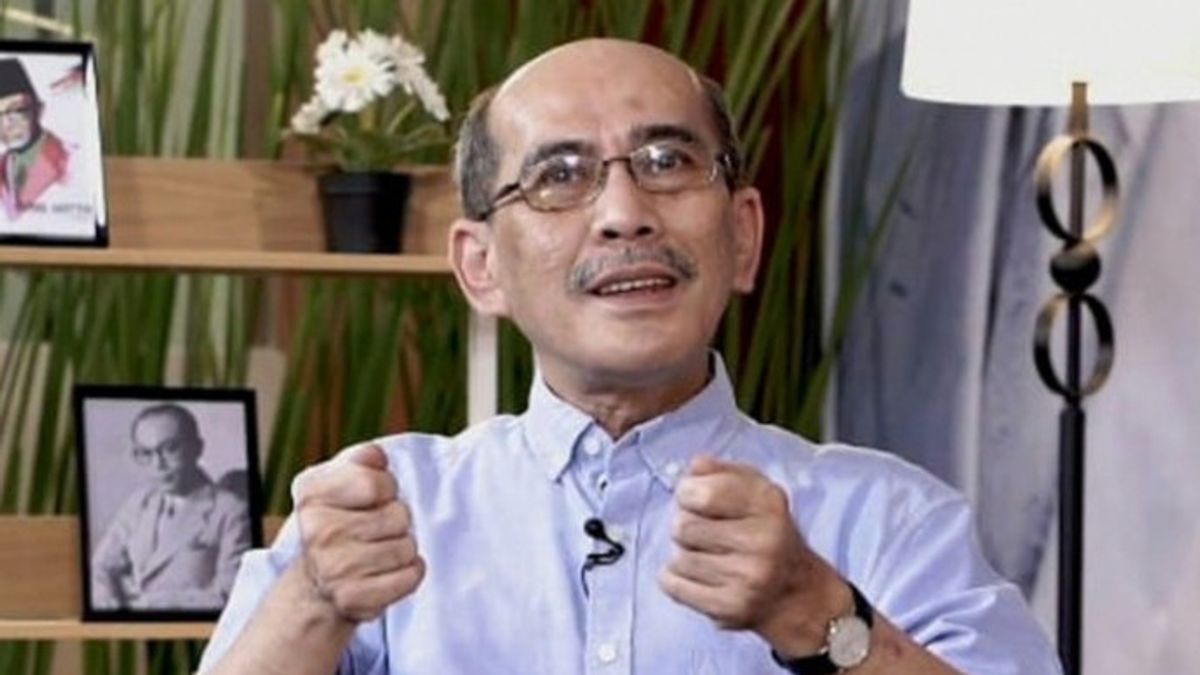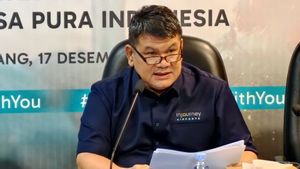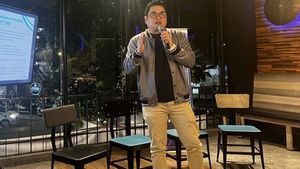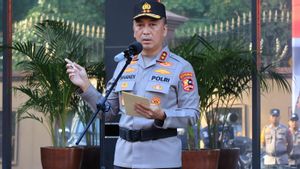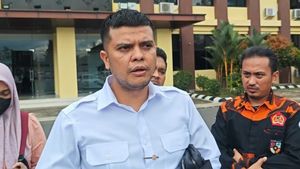JAKARTA - Indef senior economist Faisal Basri touched on the emergence of state capitalism or state capitalism in the arrangement of state-owned enterprises (BUMN). He also invited to re-consider the role of the state. Moreover, the revision of the BUMN law (RUU) actually leads to making BUMN bigger.
"In my eyes, the spirit of this bill is to realize state capitalism, to make SOEs bigger. It reaches all lines through holdings which will eventually become super holdings," he said in a webinar, Wednesday, October 6.
In fact, Faisal said that state-owned companies are often the sole agents of development that monopolize the market. According to him, Indonesian SOEs are far worse than the Chinese communist state.
"Even our state-owned enterprises are worse off than the communist state in China. We have two oil and gas SOEs, PGN and Pertamina, they are combined into one, so it's a monopoly. Meanwhile, there are four SOEs in China and each competes," he said.
Furthermore, Faisal admitted that he was surprised why Singapore, which is not bigger than Indonesia, became a reference for establishing a BUMN holding. In fact, said Faisal, Singapore has its own reasons why its SOEs are made big.
"Singapore really needs superholding, why? It's a small country with a population of only 4 million, the private sector cannot possibly be used as a force to compete with global corporate powers. So they have to be like that, but uniquely small Singapore is our reference," he explained.
In addition, Faisal also highlighted the government which has handed over various assignments to SOEs in almost all sectors. He considered that, under the pretext of the assignment, the state actually made the company a fiscal tool.
"It is a condition of enthusiasm to make BUMN as a fiscal tool, a development tool with the term assignment," he said.
Faisal explained that what is meant by the assignment is that the government orders SOEs to do something the government wants, but not through a sound APBN mechanism. An example is Pertamina, which is assigned to sell fuel at one price throughout Indonesia.
"In my opinion, this should not be called the current model assignment. So the key is that the government wants to make fuel free, it doesn't matter what is important if the company is assigned to sell it at a lower price than the cost, there must be a subsidy and the subsidy is included in the state budget. The government doesn't want to," he said.
However, said Faisal, in the current state budget there are terms fuel subsidies and compensation funds. According to him, the fuel subsidy fund was paid smoothly, while the compensation fund was paid at will by the government.
"Because there are many assignments, then placing government bills as long-term bills is paid gratefully, not paid stupidly. So it damages the joints of a healthy state in my opinion," he said.
Another example, said Faisal, is that payment for airport parking at Soekarno-Hatta International Airport some time ago had to use an e-Money card. This policy is considered troublesome because all residents who enter the airport must have a card purchased from Bank Mandiri.
According to Faisal, the privatization of state-owned companies and efforts to raise anti-competitive SOEs have actually made competition lower. The effect, said Faisal, is that people's welfare will actually decline.
"So this is anti-competition. Even if you look at it, I really understand that Indonesia's economic growth is getting slower and slower. Because believe me, the bigger the role of SOEs in the economy, the more miserable the people will be," he said.
Faisal emphasized that he is not anti-BUMN. However, Faisal hopes that SOEs will have a positive external effect on the community's economy.
"I'm not anti-BUMN at all, no. SOEs live because they carry out the mission of the state, which we call in the economy, has big positive externalities and has a big social impact," he said.
The English, Chinese, Japanese, Arabic, and French versions are automatically generated by the AI. So there may still be inaccuracies in translating, please always see Indonesian as our main language. (system supported by DigitalSiber.id)
